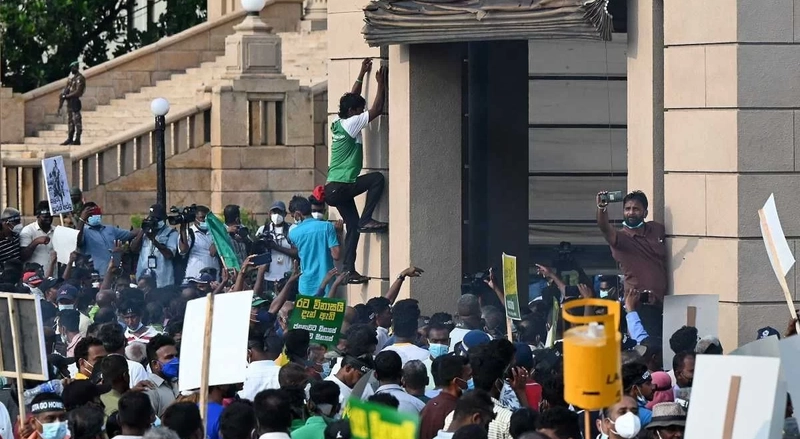Nearby, thousands of women and men marched for the 51st day in a row demanding the resignation of the leader of Sri Lanka, which is facing its worst economic crisis since independence in 1948.
Prime Minister Ranil Wickremesinghe addressed the protesters tonight in a speech broadcast on national television.
Ranil Wickremesinghe announced the creation of 15 commissions that will work with parliament to decide on future national policy.
“I propose to appoint four youth representatives to each of the 15 committees,” he said, adding that they can be chosen from among the current protesters.
Wickremesinghe was named prime minister after his predecessor, Mahinda Rajapaksa, the president’s older brother, resigned on May 9 after weeks of protests and when no other politician wanted the post.
He is the only MP from the once-powerful United National Party (UNP), which all but disappeared in the August 2020 parliamentary elections.
Rajapaksa’s party, which at the time won two-thirds of the seats in the assembly, offered him support in leading the country.
Today’s events took place a day after similar clashes, when protesters tried to enter the official residence of the president, where the head of state has been hiding since thousands of people surrounded his private house on March 31.
Sri Lanka, with a population of 22 million, lacks the dollars to fund imports of essentials such as food, fuel and medicine. An unprecedented massive shortage sparked an uprising throughout the country.
Last month, the government turned to the International Monetary Fund (IMF) for emergency financial assistance. Discussions are still ongoing.
The country is also in default on its foreign debt – $51 billion (about 47.5 billion euros).
Its currency has depreciated 44.2% against the US dollar this year, while inflation rose 33.8% in April alone.















